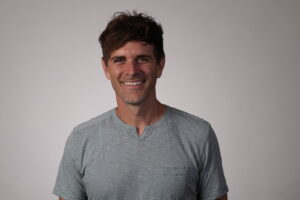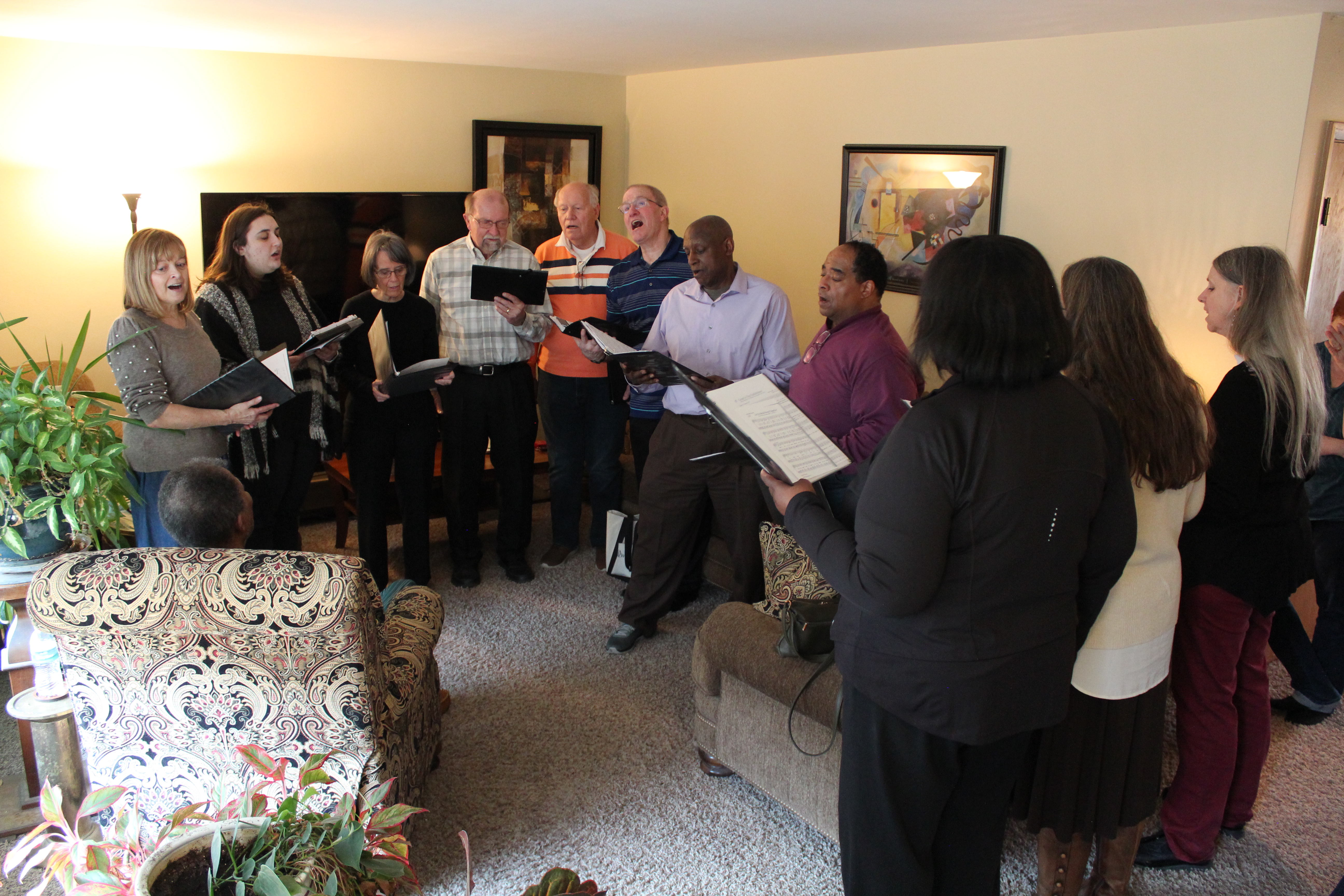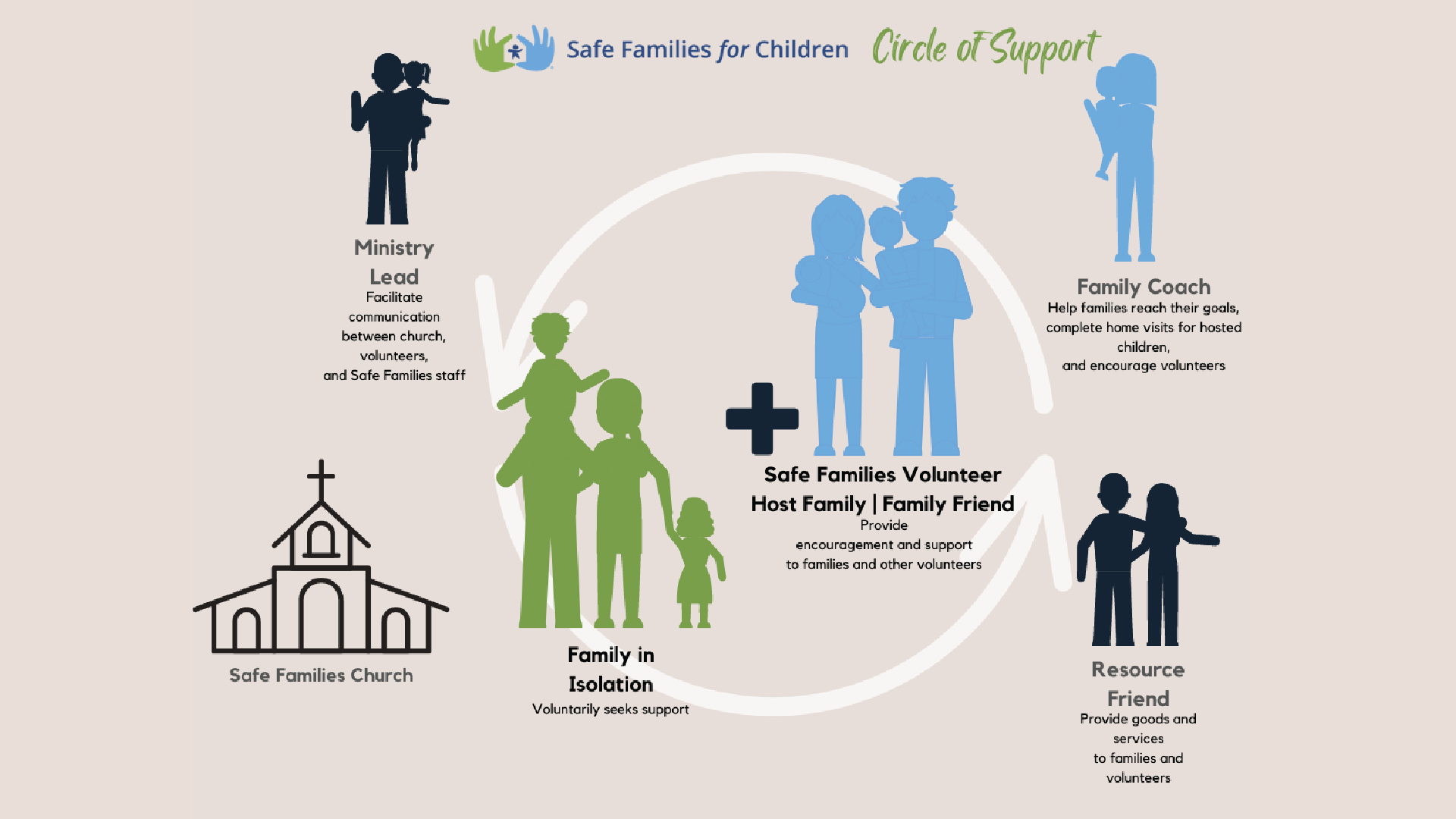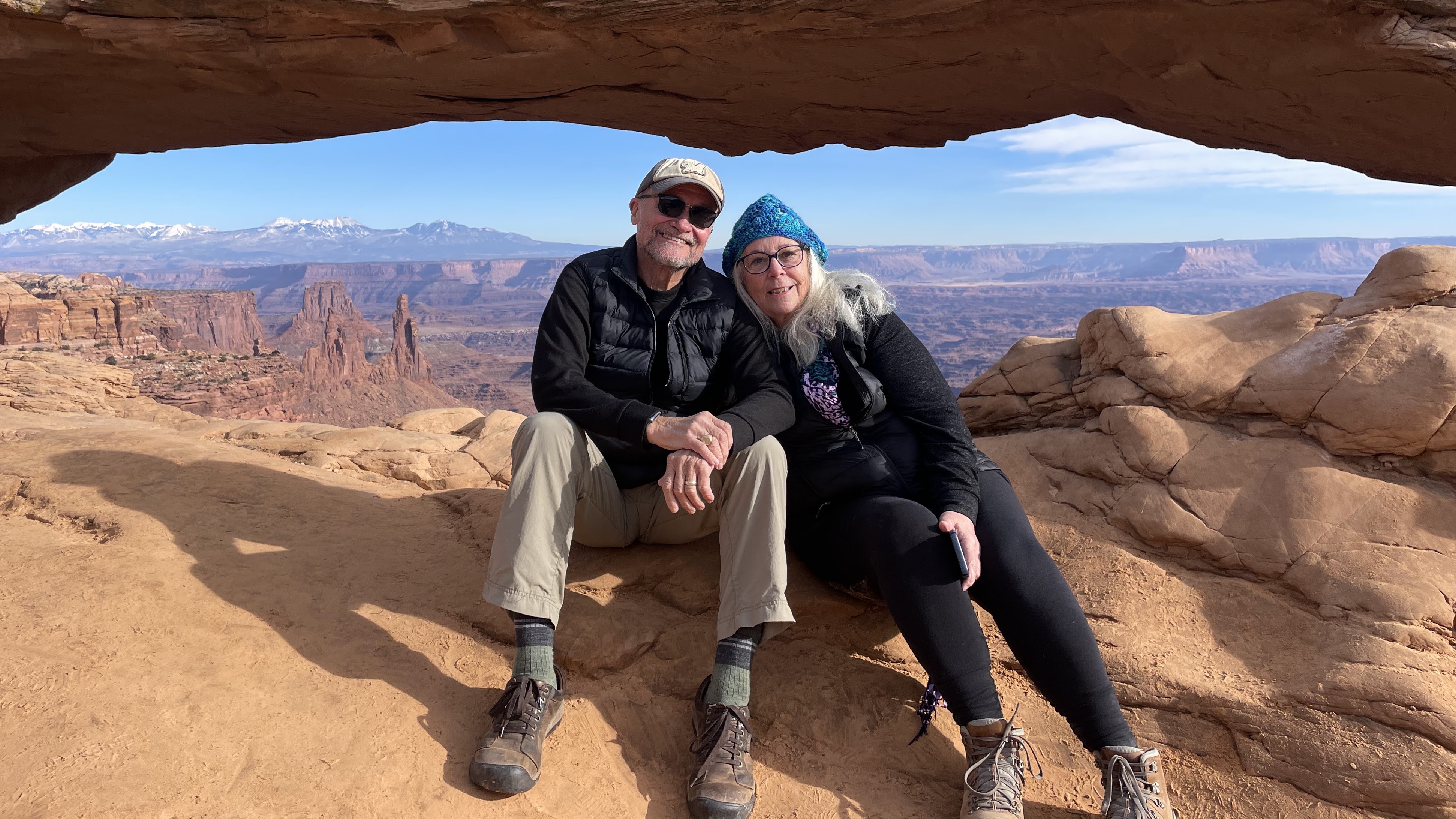One word to describe Greg Marshall: “enthusiastic.”
If youʼve ever watched him preach on a weekend at Eastbrook, you certainly know that to be true. Along with an energetic physicality, Marshall presents his deep love of Godʼs Word with an obvious depth of knowledge about theology—something he has pursued over many years, in varied contexts. Letʼs help make our big church feel a bit smaller as we get to know Greg.
Tell us about yourself and your connection to Eastbrook.
I have four daughters who have gone to school at Eastbrook Academy since they were in K4. My oldest is now a senior! My wife and I have been coming to the church since 2021. Through the school, we’d come to know Eastbrook Church pretty well, so it didn’t really feel like we were coming to an entirely new place, and a good number of our old neighbors go to Eastbrook, so it feels like home in many ways.
For a long time, I was on teaching teams at a different church out in Hartland. We wanted to be part of a community that felt like it had a good sense of who it was. So for a few years, we just came and enjoyed seeing people we knew, meeting people we didn’t know, and over time started getting more involved.
How did you get involved with preaching here?
 I love preparing messages, studying theology, tapping into the realest and deepest part of myself to try to communicate the truth that I think others are going to appreciate. I’ve been on stages in front of people, performing or speaking, since I was 18 years old. [Pastor] Matt was aware of that, but he was being careful not to ask me while we were in transition. I didn’t want to be in front of people just yet. Long-term, it was something I wanted to do more of, and I was processing that with Matt a bit. Through those conversa- tions, eventually he invited me to speak.
I love preparing messages, studying theology, tapping into the realest and deepest part of myself to try to communicate the truth that I think others are going to appreciate. I’ve been on stages in front of people, performing or speaking, since I was 18 years old. [Pastor] Matt was aware of that, but he was being careful not to ask me while we were in transition. I didn’t want to be in front of people just yet. Long-term, it was something I wanted to do more of, and I was processing that with Matt a bit. Through those conversa- tions, eventually he invited me to speak.
Youʼre very active, very demonstrative when you preach. Where does that come from?
It’s from performing. I fell in love with hip-hop music when I was about 15. I’ve found that with singing but especially rapping, I have to move in order for my brain to connect fully in that context. It’s part of how I learn and how I process.
What got you interested in the Word?
Some friends asked me to record in a professional studio when I was about 19. After I wrote a verse, one of the guys I really looked up to said, “It’s pretty good, but we’re going to record a song that’s positive, something that glorifies God.” I so badly wanted to record that I started reading the Gospel of Matthew, and while I read I had these really powerful moments where I would look at the ceiling of my dorm room and realize I wasn’t alone. There were moments when I felt like it was speaking back to me. That was how I came to faith. That feeling of discovery when reading with curiosity about God has never left, whether I’m reading scripture or systematic theology.
After finishing my undergraduate degree, I also studied at TEDS. I had some powerful experiences that affirmed yes, I do love studying this, but I don’t want to go the traditional route of being a pastor. I left the program to pursue music full-time in my 20s. I finished it over time—I took extension courses through Elmbrook Church, and ended up with a Master of Christian Studies.
What would your advice be to people who have an interest in studying theology or learning more about God, but might prefer non-traditional learning environments?
Take ownership of it in your way, and push yourself. Make it a priority to come up with questions that you’re curious about, and find people to ask them to. Theological conversa- tions are out there for the taking if you are fueled by curiosity and not anxiety to try to convince somebody of something, or to find the perfect answer.
Look up messages or sermons on YouTube. Listen to somebody share wisdom instead of just binging shows on Netflix—we rebel against our impulses and our appetites in order to feed our souls. Get to know how different speakers see things. Feel free to study everybody, but prioritize people who are comfortable with paradox and complexity. Widen your imagination, but stay tethered to Christ.
Who are some speakers and artists you look to?
Some people I read and listen to: C.S. Lewis, Dallas Willard, Tim Keller, N.T. Wright. Musically, Lecrae has a depth of insight he’s gathered over time, analyzing himself and culture, what Jesus is doing in him and in the world around him. He even talks about how the church has responded to the evolution of his music. Another person I think is fascinating is a rapper named NF. He has no interest in being referred to as a Christian rapper, but it’s pretty clear in how he’s operating that he’s following Jesus.
Is there anything else youʼd like to say to Eastbrook?
I think we have to be honest with ourselves about whether or not we want to actually know who God is, and how that’s relevant to our lives. And if we do, then we have to blow up this way of thinking that says that starts with a formal pursuit of theological education, or even reading the Bible. It starts with opening your eyes and realizing that God’s story is being told everywhere, all the time. There’s a rich treasure awaiting you in the basic choice to be curious and to pursue understanding of who God is wherever you are.
We go to the Bible to understand, who is Jesus? What is he like? And then you get into real life and take the opportunity to choose to allow the Spirit of God form you. That’s where theological education really takes root. ■
Recommended Posts

Hymns for the Homebound
March 15, 2024

Relief through Relationship: A Focus on Safe Families
March 13, 2024

God Story: Lisa Sinclair
March 13, 2024


